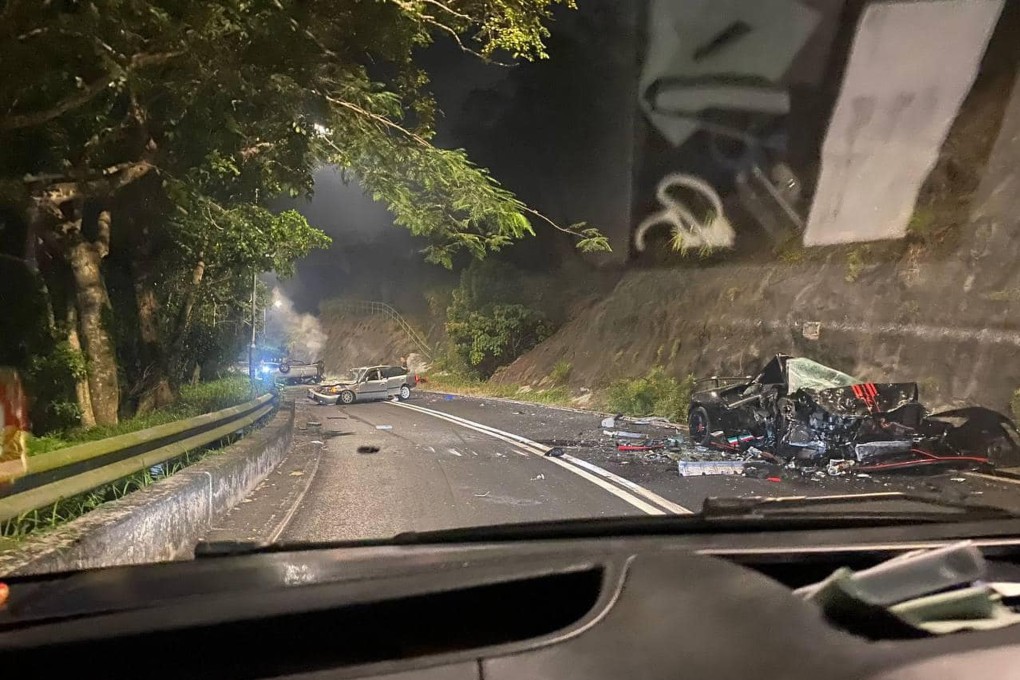Editorial | Time to put brakes on Hong Kong’s street racers
- The police need public and political support for strong deterrent action including longer jail terms and higher fines

For all the refinements of motoring from Henry Ford’s ubiquitous Model T to the expensive sports cars beloved of Hong Kong’s rich and spoilt, the maxim that speed kills is truer than ever. And it does not need to be lethally combined with alcohol or drugs.
Ample evidence, including a terrible toll of young lives, is to be found in contemporary archives or graveyards, or, within the past few weeks, in a horrific scene on Bride’s Pool Road in Tai Po in which two people died.
The mangled wreckage of a HK$5 million special edition Lamborghini made it difficult to imagine that speed was not a factor in the collision with a Toyota Corolla and a Honda Civic. That made seven deaths from six accidents in the past two years along that stretch, which is known for illegal car racing.
It is well known that illegal races take place among enthusiasts who congregate at their favourite spots late at night or in the early hours of the morning, when the roads are quiet. Hong Kong has several car clubs including one composed mostly of drivers in their 20s who do not necessarily have expensive sports cars.
The number of reports about illegal street races rose by 40 per cent to 150-odd in the first 11 months of 2020. An insider familiar with several groups of super-car owners told the Post some clubs hired scouts to check for police roadblocks during their planned outings.
Illegal races clearly pose a problem for law enforcement that goes back a long way. The old police practice of commandeering private vehicles to form roadblocks, until a crash more than 10 years ago in which six people were injured, is testament to that.
